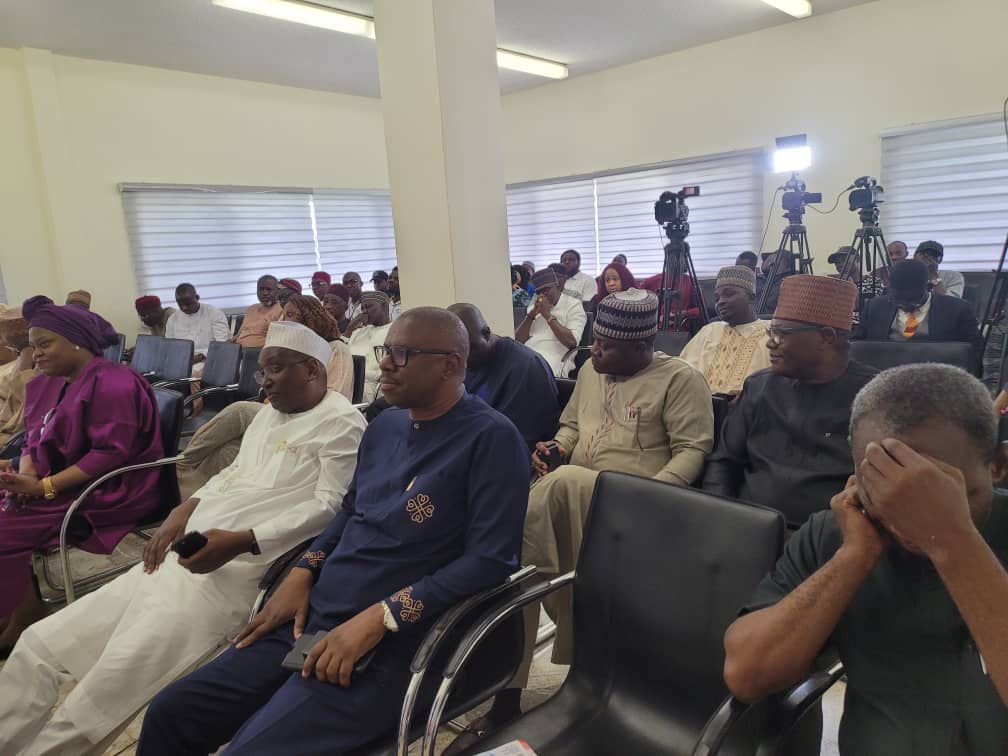
A former Minister of Police Affairs, Adamu Maina Waziri, has claimed that the June 12, 1993 presidential election did not reflect the true will of Nigerians, as the military regime of General Ibrahim Babangida left the electorate with no real choice but to vote between two of his allies—Chief M.K.O. Abiola and Alhaji Bashir Tofa.
Waziri made the revelation during the Second Posthumous Legacy Colloquium held in honour of the late High Chief Raymond Dokpesi, founder of DAAR Communications, on Thursday in Abuja. The event was organized by Dokpesi’s friends, political associates, and allies under the platform of D-37.
According to Waziri, “Nigerians, out of disappointment, were forced to vote in 1993 for candidates not of their choice. With due respect, Abiola was not the choice of Nigerians, neither was Bashir Tofa. The choices of Nigerians were Shehu Musa Yar’Adua, Bamanga Tukur, and the rest of them.”
He argued that while the June 12 election is often celebrated as a watershed in Nigeria’s democratic journey, it was in fact a desperate attempt by citizens to end military rule, rather than an endorsement of the presented candidates.
Reflecting on the legacy of the late Dokpesi, Waziri described him as a trailblazer whose contributions to broadcasting, politics, and business would remain indelible. He commended Dokpesi’s role in promoting political discourse, particularly within the Peoples Democratic Party (PDP).
Waziri also expressed dismay over the current state of Nigerian democracy, lamenting that someone he “never expected” to become president—Bola Ahmed Tinubu—was sworn into office on May 29, 2023.
Recalling his final interaction with Dokpesi, Waziri said, “At least we exchanged chat messages. I was asleep at about 11 when I was woken up with the sad news. It was good he died at home. Otherwise, the controversy of his death on that day would have had dire consequences on this country.”
He urged the organizers to properly document Dokpesi’s political journey, especially from 1999 to 2023, to preserve his legacy for future generations.
Also speaking at the event, Dr. Alex Ter Adum, General Secretary of D-37 and former Attorney General of Benue State, described Dokpesi as an extraordinary figure who played vital roles across Nigeria’s Second, Third, and Fourth Republics. He noted that Dokpesi passed away on May 29—ironically, Nigeria’s “Transition Day.”
Delivering the keynote address, Professor Yusuf Usman criticized the current political leadership, citing worsening insecurity, growing injustice, and widespread corruption as key challenges.
“We have leadership that is focused on itself and distant from the people,” he said. “There’s no country that can be safe with injustice. Life has become worthless, and our military is overstretched across all states. The people are suffering, and the government is not listening.”
Usman concluded that the current state of the nation is the result of a broken political system where the consequences are being borne by the ordinary citizens.